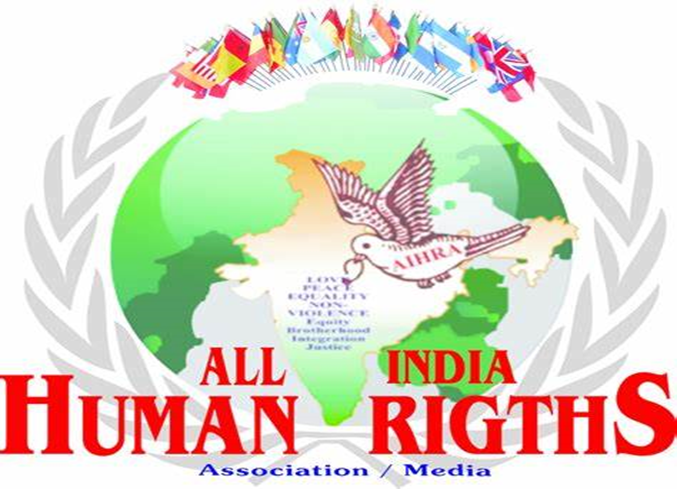Legalization of Prostitution- ( AIHRA )
All India Human Rights Association (AIHRA)
Legalization of Prostitution
WRITTEN BY
Khushbu Mehta
3rd
year – BBA.L.L.B
KES' Shri.
Jayantilal H. Patel Law College
EDITED BY
Poojitha polichetty
3rd year
- BA.L.L.B(Gen)
Dr.
Ambedkar Global Law Institute, Tirupati
Prostitution means a person,
especially a female, who is engaged in a profession where they get paid for
having sex with unknown people. Prostitution is a form of physical and mental
exploitation done for the monetary reason by society. Not only females are into
this profession but also transgender and some males are being exploited, but
primarily females.
The concept of paid sex, or
prostitution, is not new to this world. In fact, the traces of prostitution as
a profession dates back centuries and is considered to be the world’s oldest profession. The root of
prostitution is profoundly entrenched in our old traditions, which were
prevalent in several parts of our country, like the Devadasi, the courtesan,
and the Tawaifs.
Devadasi is a woman who works as an
artist and spends her life at a temple adoring and serving God. Devadasi
originated in the latter part of the eighth century when the female wedded the
goddess in an effort to honour the god, and they were taught in classical
dance. Devadasis enjoyed great status and respect in society and the courts
before the Mughals and British conquered India. Primarily during the Mughal Era,
Tawaifs and courtesans were the ladies who served aristocratic males. At
mehfils, the Tawaifs would perform for their suitors by singing, dancing, and
reciting poetry. Their primary objective was to amuse their visitors, and sex
was not necessarily stipulated in the agreement. High-class or the most
well-liked Tawaifs frequently had their selection of the best potential
suitors.
In India, colonialism brought with it manipulation, exploitation, and oppression. Despite being the oldest, it is still seen as nasty and sinful. The British turned the fundamentals of sexual liberty, femininity, art, and culture into devotion, bhakti, etc., and then started placing their own cultural restrictions upon these women. Additionally, these women started to suffer abuse at the hands of temple priests when colonialism and the nobility faded. And as a result, they become exploitable and subject to poverty. In our "male-dominated" culture, where poverty was the main obstacle, it was impossible for women to be economically independent. They were also denied access to education and freedom. These difficulties have made prostitution one of the highly opted sources of income.
Prostitution was outlawed upon
independence. As a result of the abolition, some people started to traffic
people with the aim of using them as sexual slaves and selling them on the
black market to make money. The United Nations held a convention in 1950 to
combat the human trafficking of women and children as a result of the rise in
human trafficking not only in India but throughout the world. India signed the
convention, known as "Suppression of Women in Traffic in Persons and of
the Exploitation of Others," along with many other nations. The Immoral
Traffic (Prevention) Act, 1956, was enacted by the Indian government in
response to this (PITA).
It is important to recognise that
society still views prostitution as sinful and terrible, even before examining
its legal standing. One should be aware that in India, simply discussing sex or
sex education is frowned upon. Therefore, the majority of people believe that
in order to completely abolish prostitution from society, stern action should
be done. However, this industry is still thriving, just like any other. There
is a large market for sex. The sex workers also endure physical violence,
sexual exploitation, and emotional suffering.
Although PITA does not explicitly
legalise prostitution, it does impose certain limitations and restrictions on
third-party involvement, such as the use or operation of a brothel, pimps
(persons who control prostitutes), trafficking, soliciting, and operating
business in public places are offences that are punishable under this Act as
well as the IPC and the Juvenile Justices Act. The Act does not prohibit to
carrying out business in private is not the offence but the involvement of this
third-party makes it difficult for sex workers to carry out business.
Most of the sex workers are brought
into this industry through human trafficking. This could be decreased by
lifting some of the restrictions and providing some labour rights so that they
can protect themselves from exploitation. Just like in the case of ‘prohibition
of liquors from Bombay State', which caused a rise in smuggling of alcohol and
crime relating to it, as soon as the government made a relaxation there was a
decrease in smuggling and crime related to it.
Recently, the Supreme Court has
given a judgement which acknowledges prostitution as a professional work just
like any other profession. with this order the court also gave some
recommendations that should be considered-
● Provision for any sexually assaulted sex worker to receive
emergency medical care.
● States have been directed to conduct
an audit of all Immoral Trafficking (Prevention Act Protective Homes).
● Police and other law enforcement
organisations should be made aware of the rights of sex workers in order to
treat them with respect and prevent verbal and physical abuse.
● Ensure that the media takes the
utmost care not to divulge the identity of sex workers by requesting that the
Press Council of India publish appropriate rules.
●
The health and safety precautions taken by sex workers must
not be considered as crimes or as proof that a crime has been committed.
Reference
https://blog.ipleaders.in/need-know-immoral-traffic-prevention-act-1956/
Immoral Traffic (Preventive) Act - https://indiankanoon.org/doc/69064674/
https://www.womensweb.in/2014/01/why-prostitution-should-be-legalised/
https://www.iasparliament.com/current-affairs/daily-news/taking-steps-to-ensure-sex-workers-rights
Human Rights Education (aihru.org)
All India Human Rights Association (AIHRA)







Comments
Post a Comment